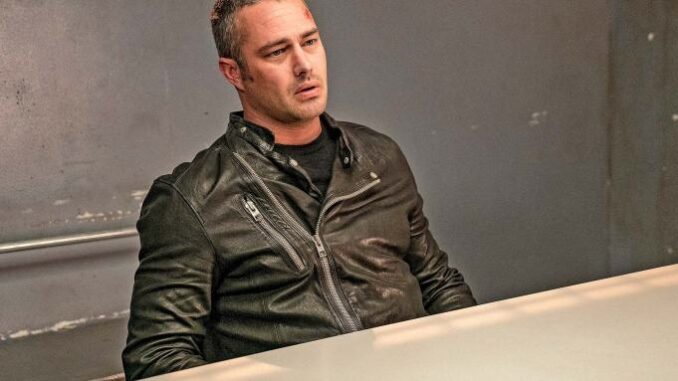
The Fire's Cold Spot: Taylor Kinney's Absence and the Future of Chicago Fire
The familiar roar of the engine, the clang of the alarms, the ever-present risk – these are the cornerstones of NBC's "Chicago Fire." But even the most solid foundations can feel shaky when a key brick is removed. The recent announcement of Taylor Kinney's leave of absence from the show has sent ripples through the devoted fanbase, raising questions not just about the immediate future of his character, Lieutenant Kelly Severide, but also about the long-term stability of the series itself.
Kinney, a mainstay since the show's inception in 2012, embodies the stoic heroism and quiet vulnerability that defines Severide. His character arc, from a cocky, rule-bending Squad lieutenant haunted by personal demons to a seasoned leader finding stability in his marriage with Stella Kidd, has been a central narrative thread. His presence isn't simply that of an actor; he is an integral part of the show's DNA, woven into the fabric of Firehouse 51 and its dynamic.
The news of his departure, shrouded in the ambiguity of a personal leave, understandably sparked speculation and concern. The immediate question, of course, is how the writers will address his absence within the show's narrative. Will Severide be temporarily reassigned, perhaps to a distant training facility? Will he be dealing with a family emergency that pulls him away from Chicago? Or will the writers opt for a more dramatic route, writing him out temporarily with a potentially perilous situation that leaves his fate uncertain? The writers have a delicate balancing act to perform. They must provide a satisfying explanation that honors the character while simultaneously creating compelling storylines that can function without his presence.
Beyond the immediate narrative challenges, Kinney's absence highlights the inherent risks of relying so heavily on established characters. The "Chicago" franchise, built on the bedrock of its ensemble cast and their deeply interconnected relationships, thrives on the continuity and familiarity it offers viewers. Losing a character like Severide, who has been instrumental in shaping the show's identity, creates a void that is difficult to fill. While the show has consistently introduced new characters and explored different perspectives, the core relationships – Severide and Kidd, Severide and Casey (before his departure), Severide and Boden – have provided the emotional anchor that keeps viewers invested.
The impact of Kinney's leave also raises questions about the future of the franchise as a whole. "Chicago Fire" is no longer just a standalone show; it's the flagship of a sprawling universe, a carefully constructed ecosystem of emergency services dramas that are interconnected through crossovers and shared storylines. Severide's absence could potentially impact the narrative arcs of other "Chicago" shows, requiring significant adjustments to the overall tapestry of the franchise.
However, this period of uncertainty can also be an opportunity for "Chicago Fire" to reinvent itself and explore new avenues. Kinney's absence can force the writers to delve deeper into the supporting characters, giving them more screen time and allowing them to develop their own compelling storylines. Perhaps this is the chance for new leadership to emerge within Firehouse 51, allowing other characters to step into the limelight and showcase their capabilities. The absence could also serve as a catalyst for further exploration of the personal lives of the firefighters, giving viewers a deeper understanding of their struggles and triumphs beyond the adrenaline-fueled rescues.
Ultimately, the success of "Chicago Fire" in navigating Kinney's absence will depend on the writers' ability to adapt and innovate while remaining true to the core values that have made the show so popular. The firehouse will undoubtedly feel colder without Severide's presence, but it's up to the remaining cast and crew to keep the flames burning brightly, demonstrating that even in the face of unforeseen challenges, the spirit of Firehouse 51 – courage, camaraderie, and unwavering dedication – will continue to endure. The real test will be whether they can successfully stoke those flames, ensuring that "Chicago Fire" remains a burning success even with a cold spot at its heart.
